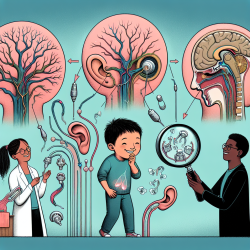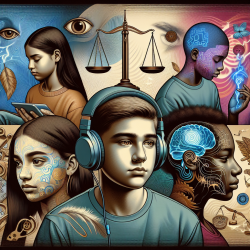Introduction
The COVID-19 pandemic has dramatically reshaped the landscape of mental health and therapy, presenting unique challenges and opportunities for practitioners. The special issue on COVID-19 in the Journal of Contextual Behavioral Science offers a wealth of insights into how contextual behavioral science (CBS) can be leveraged to enhance therapeutic outcomes, particularly in online settings like those provided by TinyEYE.
Understanding the CBS Approach
Contextual Behavioral Science emphasizes the importance of understanding behavior in context, focusing on psychological flexibility, symbolic relations, and the expansion of behavioral repertoires. The CBS approach is uniquely suited to address the multifaceted impacts of a global health crisis, offering tools and frameworks to help individuals navigate challenges such as anxiety, social isolation, and stress.
Key Findings and Applications
The special issue highlights several key findings that can inform online therapy practices:
- Psychological Flexibility: The ability to adapt one's behavior and mindset in response to changing circumstances is crucial. Studies have shown that psychological flexibility can buffer against mental health challenges, making it a vital focus in therapy.
- Sleep and Wellbeing: Research underscores the link between sleep quality and psychological flexibility. Poor sleep can exacerbate stress and inflexibility, suggesting that addressing sleep issues should be a component of therapeutic interventions.
- Chronic Pain Management: CBS offers valuable insights into managing chronic pain, particularly through telehealth. Techniques such as acceptance and commitment therapy (ACT) can be adapted to address the unique challenges posed by the pandemic.
Implementing CBS in Online Therapy
For practitioners at TinyEYE, integrating CBS principles into online therapy can enhance outcomes for children and families. Here are some strategies:
- Focus on Flexibility: Encourage clients to develop psychological flexibility by exploring new ways of thinking and behaving. This can be achieved through exercises that promote present moment awareness and acceptance.
- Address Sleep Issues: Incorporate discussions about sleep hygiene and its impact on mental health into therapy sessions. Provide resources and strategies to improve sleep quality.
- Utilize Telehealth Tools: Leverage the digital platform to deliver CBS interventions effectively. Use interactive tools and exercises to engage clients and foster a sense of connection and support.
Encouraging Further Research
While the special issue provides a comprehensive overview of CBS applications during the pandemic, there is always room for further research. Practitioners are encouraged to explore additional studies and contribute to the growing body of knowledge on effective online therapy practices.
To read the original research paper, please follow this link: Introduction to the special issue on COVID-19.










